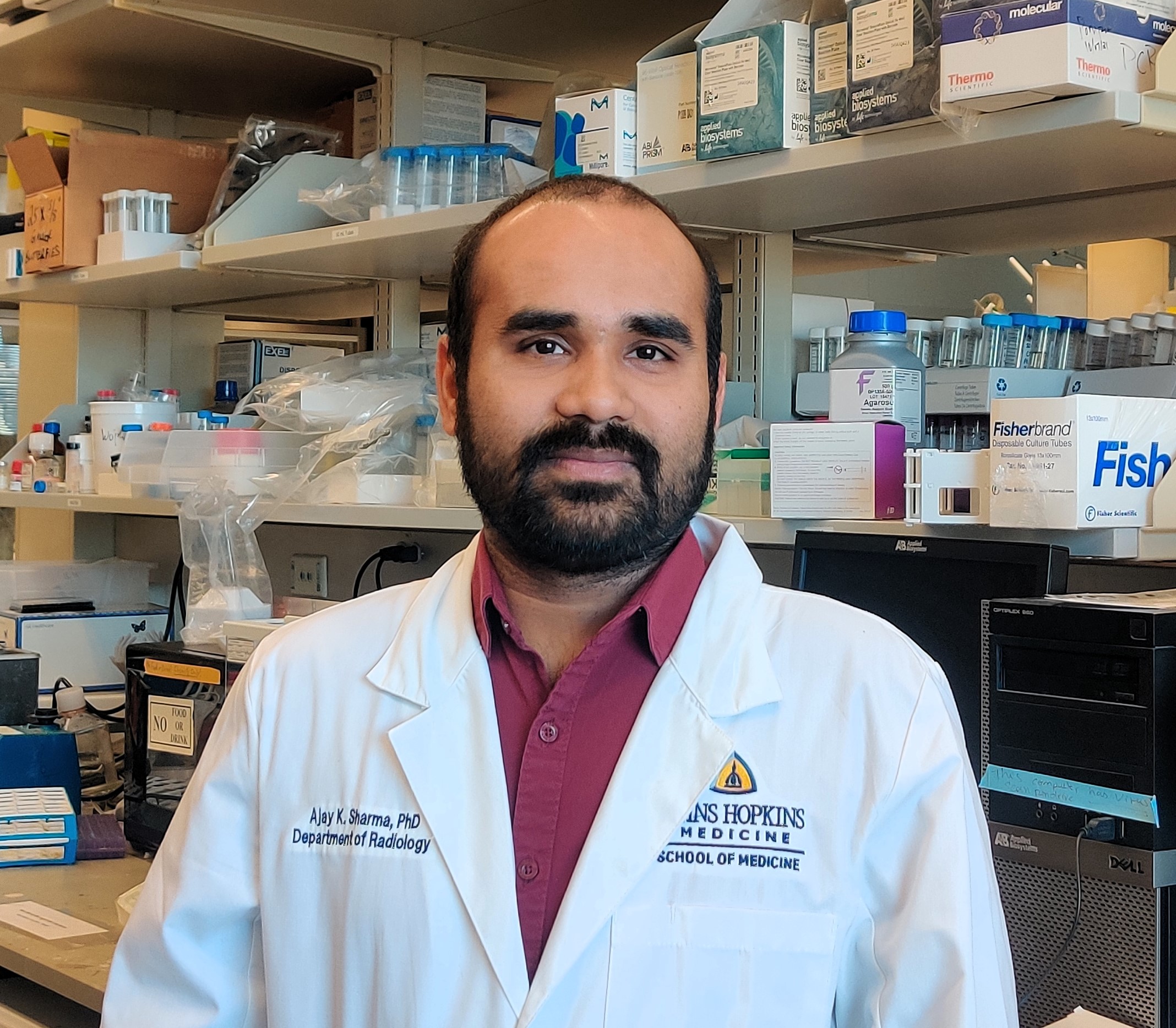
The Education and Research Foundation for Nuclear Medicine and Molecular Imaging (ERF) and NETRF are proud to announce that Dr. Ajay Kumar Sharma has been awarded the prestigious 2024 ERF/NETRF Nuclear Medicine Pilot Research Grant in Neuroendocrine Tumors (NETs). Dr. Sharma is a Research Associate at Johns Hopkins University. This significant two-year grant is funded by the Neuroendocrine Tumor Research Foundation.
Dr. Sharma’s research leverages the peptide-based agent AJ210, a dual-function platform that employs Gallium-68 for high-precision imaging and Actinium-225 for targeted radiotherapy. This theranostic combination is poised to improve the diagnostic accuracy and treatment efficacy for patients with lung NETs, especially those cases resistant to standard therapies. With his expertise in radiopharmaceutical development and his commitment to patient-centered research, Dr. Sharma aims to address the unique challenges of neuroendocrine tumors that lack targeted treatments.
“Receiving the ERF/NETRF Nuclear Medicine Pilot Research Grant in Neuroendocrine Tumors is a major step forward in my research career. This grant provides essential support to pursue my new ideas in diagnosing and treating neuroendocrine tumors. It’s both inspiring and validating to have our work recognized in this way, and it strengthens my commitment to making a real difference for patients. I’m incredibly grateful for this opportunity and eager to continue pushing our research forward to address the critical needs in neuroendocrine tumor care,” said Dr. Sharma.
ERF has expressed gratitude for the longstanding collaboration with NETRF, which has furthered our shared mission of advancing nuclear medicine and molecular imaging to improve patient care. “NETRF is proud to collaborate with ERF on this grant and we look forward to Dr. Sharma’s progress to advance neuroendocrine cancer diagnostics and treatment,” says Elyse Gellerman, CEO of NETRF.
Dr. Ajay Kumar Sharma’s research career began at the Indian Institute of Science Education and Research (IISER) in 2014, where he conducted foundational studies on chemical tools for investigating reactive oxygen and sulfur species in biology. His early training under Dr. Harinath Chakrapani equipped him with expertise in organic synthesis and cellular biology. In 2019, he joined the Department of Radiology at Johns Hopkins University as a postdoctoral fellow, working with Dr. Sridhar Nimmagadda, where he expanded his skillset to include radiopharmaceutical development, especially peptide optimization for cancer imaging and therapy.
Throughout his career, Dr. Sharma has focused on developing PET-based imaging agents with radioisotopes such as F-18, Ga-68, and Cu-64, as well as radiotherapeutic agents utilizing Lu-177 and Ac-225. His research portfolio, combining radiochemistry, peptide synthesis, and preclinical assessment, is underpinned by a commitment to translating scientific discoveries into clinical applications that benefit patients. His long-term vision is to advance theranostic approaches for cancers that are difficult to treat with conventional methods. Dr. Sharma envisions that the successful development of this platform will improve patient outcomes significantly and lay the groundwork for expanded research.
